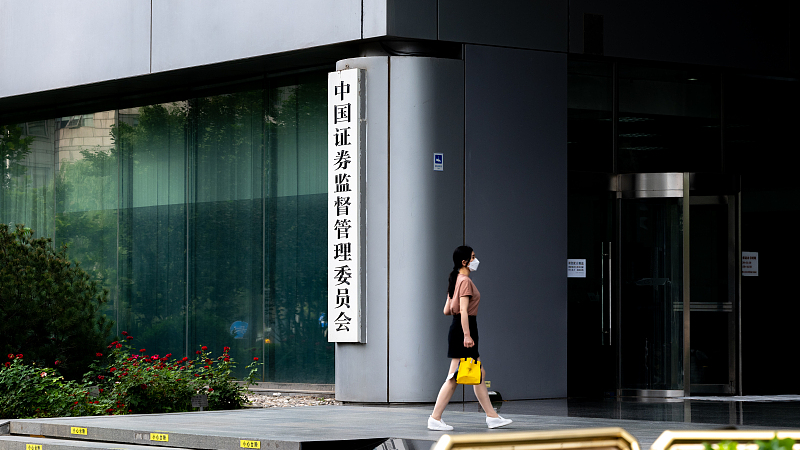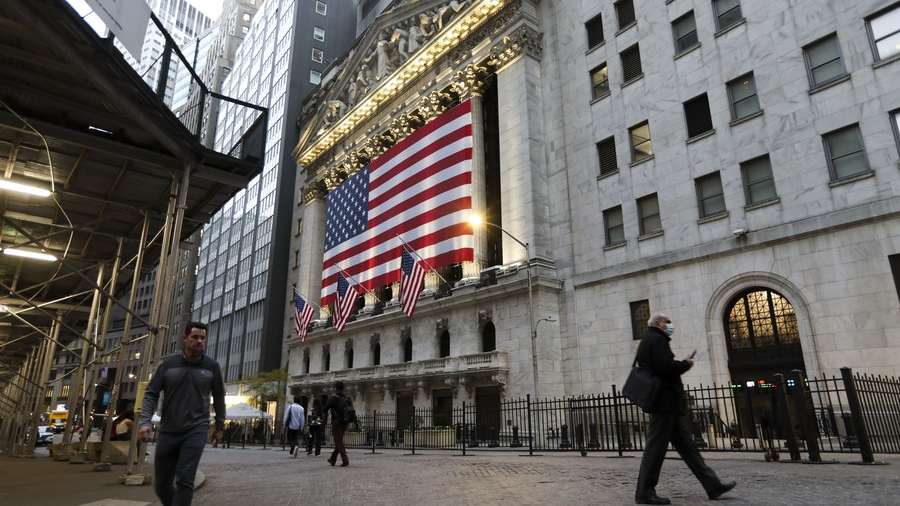
The China Securities Regulatory Commission (CSRC) in Beijing, August 12, 2022. /CFP
The China Securities Regulatory Commission (CSRC) in Beijing, August 12, 2022. /CFP
Editor's note: Hannan Hussain is a foreign affairs commentator and author. He is a Fulbright recipient at the University of Maryland, the U.S., and a former assistant researcher at Islamabad Policy Research Institute. The article reflects the author's opinions and not necessarily the views of CGTN.
On Friday August 26, the China Securities Regulatory Commission (CSRC) and the Ministry of Finance signed a landmark supervision cooperation agreement with the U.S. Public Company Accounting Oversight Board (PCAOB). The deal serves as a major step towards expanding bilateral audit cooperation, and helps cool tensions over a year-long audit dispute that has disproportionately weighed on compliant Chinese companies listed in the U.S. "Promoting cross-border audit oversight cooperation will further enhance the audit quality of the auditors, protect the legitimate interests of investors, and foster a sound international regulatory environment for companies' pursuit of overseas listings in a lawful and compliant manner," said the CSRC in its public statement.
The long-sought agreement on China-U.S. regulatory oversight gives much needed impetus to resolve an audit issue of mutual interest. Consider the agreement's role in aligning transparent auditing practices with the principles of "equality and reciprocity." This extends due protection to dozens of Chinese companies listed in the U.S., because audit inspections will be carried out in accordance with laws and regulations in both countries. That sends an assuring message to U.S. investors too, given that China-based firms account for a collective $1.3 trillion in market value.
The signing of the agreement also provides a new opening for Washington to factor U.S. and Chinese audit laws in equal measure in the near term. An overreliance on the former has led to unfair targeting of Chinese enterprises in the past, prompting an abuse of national security and demonstrated inconsistency with mutually acceptable market rules. The agreement gives strength to a departure from political overtones, allowing inspections over relevant audit firms to be carried out "within the jurisdiction of both sides," effectively reducing the risks of undue harm to the rights and interests of listed Chinese companies.
Scores of Chinese companies have been met with high investor confidence in Wall Street. China's sustained push for stable economic growth has been a key contributor to that investor optimism, and Chinese firms have delivered high value by raising billions on U.S. equity markets at record-breaking pace.

Pedestrians walk past the New York Stock Exchange in New York, the United States, November 9, 2020. /Xinhua
Pedestrians walk past the New York Stock Exchange in New York, the United States, November 9, 2020. /Xinhua
All that highlights the need to conduct future China-U.S. audit supervision in a manner that is consistent with market rules and in full accordance with the same inspection standards that are applied to other listed companies in the U.S. After all, Friday's deal furthers China-U.S. oversight compliance by ensuring that audit working papers are obtained transparently through the Chinese regulatory authority. Similarly, it is a welcome step from Beijing to expand its scope of overall assistance to the U.S., particularly by including several Hong Kong regional firms that have provided audit services for Chinese concepts stocks listed in the U.S.
It is thus imperative for Washington to take note of China's consistent push to manage oversight differences, and ensure that it comes through by reciprocating in the future. U.S. regulators should treat Chinese companies to the same standards of audit transparency as those that are applied to registered firms in more than 50 other countries.
Interestingly, the absence of a formally established "cooperation framework" complicated cross-border regulatory efforts in the past. For one, the framework's absence prolonged a long-running audit dispute for listed Chinese companies because "specific arrangements on conducting inspections" were not fully known. These arrangements include specifics on how accounting firms were to share their audit details with Chinese and U.S. regulators, what it meant to fully comply with "cross-border" jurisdictions, and what a "sound international regulatory environment" for U.S. listed companies should look like.
As a result, Friday's deal is a positive attempt to address that ambiguity. The agreement empowers Chinese and U.S. regulators to tailor their inspections to the "statutory duties"of relevant firms in the corresponding country. It also levels the field in the auditing space by reminding us that Chinese securities authorities have full rights to investigate global auditing firms in the process.
All that promise to render China-U.S. audit cooperation more cooperative, accommodating, and result-oriented in the future.
(If you want to contribute and have specific expertise, please contact us at opinions@cgtn.com. Follow @thouse_opinions on Twitter to discover the latest commentaries in the CGTN Opinion Section.)

